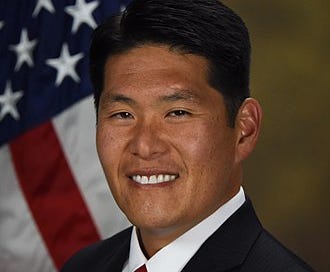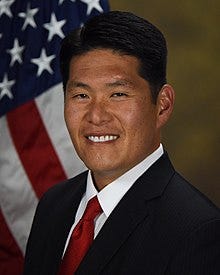Pros vs Pols
Federal prosecutors fall into one of two categories: political and career. They have different authorities and differt perspectives. Yet they must work together for federal law enforcement to suceed
Justice Briefs is a weekly newsletter devoted to federal criminal prosecution. The federal government’s evolution over the last 230 years has given federal prosecutors significant discretion. Few realize it exists and even fewer know how it is used. Justice Briefs aims to make federal prosecutions and prosecutors more accessible to the general public. Please help me in this endeavor by subscribing and sharing with others.
Justice in Brief
*In the Southern District of Ohio, a man entered a guilty plea to communicating a threat to burn down a reproductive health provider’s building. He also pleaded guilty to his part in a conspiracy to defraud businesses by offering services they could not provide. The fraud totaled more than $1 million.
*In the District of South Carolina, the founder and former CEO of a renewable fuel company stole over $5 million from the company. He also defrauded investors of $15 million over a two-year period. After entering a guilty plea, he could receive a 20-year sentence.
*In the Western District of Texas, the grand jury indicted a man for failing to report over $4 million worth of bitcoin transactions on his tax returns, most of which was used to purchase a house in Ft. Worth, Texas.
Politically appointed prosecutors vs career prosecutors
This past week, special counsel Rob Hur’s report into former Vice President Joe Biden’s retention of national security information after leaving office. Hur has received criticism for his conclusion that criminal charges were not warranted because Biden would come across as a sympathic old man who did not understand what was happening. In the context of the 2024 Presidential election, this greatly angered the White House, who claimed the comments were politically motivated. This is the political side of federal prosecution.
Yet Hur has also worked on the other side: the career side. For much of Hur’s legal career, he worked for the Justice Department in several roles. Career federal prosecutors are those who are not presidentially appointed and Senate approved. Most serve as trial attorneys, either in the various United States Attorneys offices or at Main Justice. Another cadre oversees the work performed by the trial attorneys. A final group advises the political appointees. The career attorneys are meant to be non-partisan and apolitical. They do not make policy but implement it through case selection.
This duality exists at both the Department-level in Washington, D.C. and at the regional office-level in the United States Attorneys Offices throughout the nation. In both places, politically appointed people lead. They set the overall policies and goals. Often, they do so in accord with their political affiliation. While they are supposed to do justice, their ideological viewpoints shape their conception of justice. Conversely, the career attorneys, though they may hold political and ideological views, must put those aside when making decisions about cases. They do not make policy. Instead, they look at the evidence in each case and determine if the case merits prosecution.
Ideally, these two side work together. The political side creates and communicates prosecutorial policy. The career side takes the policy and implements it. Problems arise when the two sides disagree. This can arise when the career side believes the policy the political side created leads to injustice. It can also arise if the political side feels the career side is not properly implementing the policy. Discord can also arise when the political side attempts to dictate the outcome of particular cases. The career side feels they are making objective decisions, based on the evidence. When the political side insists on deciding, it injects a level of politics into the case. While this may be the case, the political side is also responsible for the Department’s operations and are the only group inside the Department accountable to the public.
Over the next several weeks, Justice Briefs will examine the political/career divide within the Department. Understanding the dynamic helps us assess how the political/career dynamic should function.
I hope you enjoyed this issue and that it made you stop and think. I would love to hear any comments, questions, concerns, or criticisms that you have. Leave a comment or send a message! Also, if you enjoyed this or if it challenged your thinking, please subscribe and share with others!




